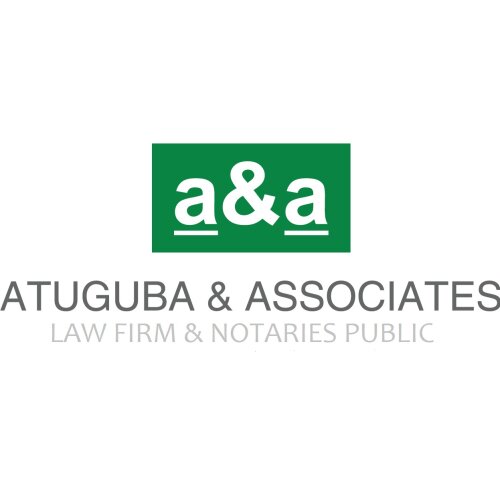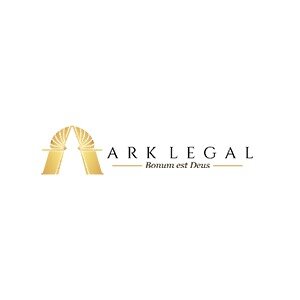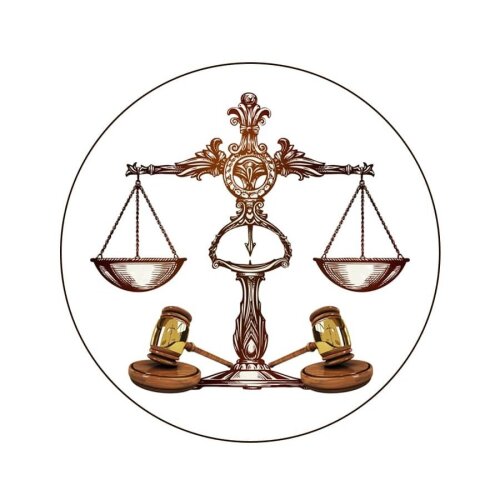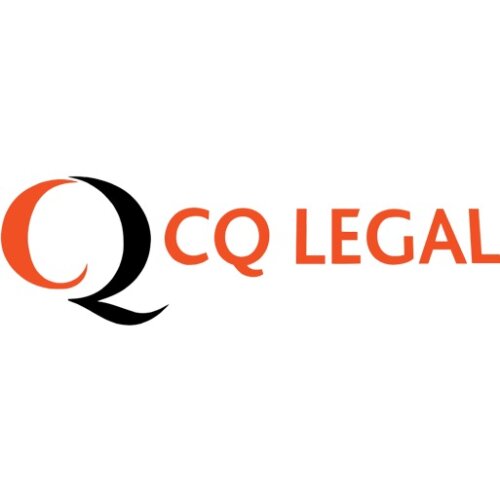Best Oil, Gas & Energy Lawyers in Ghana
Share your needs with us, get contacted by law firms.
Free. Takes 2 min.
Or refine your search by selecting a city:
List of the best lawyers in Ghana
About Oil, Gas & Energy Law in Ghana
Ghana's oil, gas, and energy sector has seen significant growth since the discovery of offshore oil fields in 2007. This industry plays a crucial role in the country's economy, attracting foreign investment, and contributing to energy security. Ghana's legal framework governing oil, gas, and energy is structured to regulate exploration, production, distribution, and management of resources in a sustainable manner. This comprehensive legal framework aims to ensure that operations within the sector are conducted safely, environmentally consciously, and in line with national economic interests.
Why You May Need a Lawyer
There are several situations in which you may require legal assistance in the oil, gas, and energy sector in Ghana:
- Contractual Agreements: Negotiating and drafting contracts with oil and gas companies, suppliers, or service providers can be complex and require legal expertise.
- Regulatory Compliance: Ensuring compliance with local laws and regulations, securing necessary permits, and navigating regulatory environments necessitate legal guidance.
- Dispute Resolution: Disputes may arise over land use, environmental impact, royalties, or contractual obligations, requiring legal representation for resolution.
- Investment and Mergers: Legal advice is essential for foreign investments, mergers, and acquisitions to ensure compliance with Ghanian laws and to protect investments.
- Environmental Concerns: Legal experts can help address and mitigate environmental impacts associated with oil, gas, and energy operations.
Local Laws Overview
The key aspects of local laws relevant to the oil, gas, and energy sector in Ghana include:
- Petroleum (Exploration and Production) Act, 2016: Governs rights, availability of oil blocks, and responsibilities for exploration and production of petroleum resources.
- Energy Commission Act, 1997: Establishes the Energy Commission which regulates electricity, gas, and renewable energy sectors.
- Ghana National Petroleum Corporation Law, 1983: Establishes the GNPC as the state agency responsible for exploration and participation in petroleum operations.
- Local Content and Participation Regulations, 2013: Mandates local participation in the sector, fostering development by ensuring that Ghanians benefit economically.
- Environmental Protection Agency Act, 1994: Regulates environmental aspects, requiring an environmental impact assessment for oil and gas projects.
Frequently Asked Questions
What entities oversee oil and gas regulations in Ghana?
The Ministry of Energy, Energy Commission, Ghana National Petroleum Corporation (GNPC), and the Environmental Protection Agency (EPA) play key roles in overseeing regulations.
Is foreign investment allowed in Ghana's oil and gas sector?
Yes, foreign investment is allowed and actively encouraged, subject to compliance with local laws and regulations.
What is the local content requirement in Ghana's oil and gas industry?
The current regulations require a minimum level of Ghanian participation, including workforce employment and service provision, to foster local economic growth.
How are environmental concerns managed in oil and gas operations?
Companies must conduct Environmental Impact Assessments and obtain environmental permits from the EPA before commencing operations to mitigate impacts.
What are the key tax obligations for oil and gas companies in Ghana?
Companies are subject to corporate taxes, petroleum income tax, and various royalties, defined by the Petroleum Revenue Management Act.
Can landowners lease their land for oil and gas exploration?
Yes, landowners can lease land for exploration, but must comply with legal requirements and may need government consent for operations.
What types of energy are considered under Ghana's energy laws?
Ghana's energy laws consider traditional hydrocarbon-based energy, electricity, and renewable energy sources like solar and wind.
How can oil spill liabilities be addressed?
Liabilities for oil spills are typically addressed through insurance, compliance with safety regulations, and prompt response measures.
Is there a specific law for renewable energy in Ghana?
Yes, the Renewable Energy Act, 2011, promotes the use of renewable energy to power all socio-economic activities in the country.
What role does GNPC play in Ghana's oil and gas sector?
GNPC is responsible for exploration, managing state interests, and ensuring that the government benefits from the sector's development activities.
Additional Resources
Here are some valuable resources and bodies for legal advice in the oil, gas, and energy sector in Ghana:
- Ministry of Energy: Provides comprehensive information on energy policies and regulatory frameworks.
- Energy Commission: Offers guidance on energy resource management and licensing in Ghana.
- Ghana National Petroleum Corporation (GNPC): A key resource for insights into petroleum operations and development opportunities.
- Environmental Protection Agency (EPA): The primary body for environmental regulation and assessments in energy projects.
- Ghana Bar Association: Can help connect individuals with experienced legal professionals in the oil, gas, and energy sectors.
Next Steps
If you need legal assistance in the oil, gas, and energy sector in Ghana, consider undertaking the following steps:
- Identify Your Legal Needs: Determine the specific area in which you require legal advice or representation.
- Consult a Qualified Lawyer: Seek out law firms or lawyers specializing in oil, gas, and energy law in Ghana. They can provide insights and representation tailored to your needs.
- Engage with Regulatory Bodies: Contact relevant regulatory bodies for guidance and ensure compliance with necessary procedures.
- Review and Understand Contracts: Have a legal expert review any contracts before signing to protect your interests.
- Stay Informed: Keep abreast of developments in local laws and the energy sector to anticipate and manage changes effectively.
Lawzana helps you find the best lawyers and law firms in Ghana through a curated and pre-screened list of qualified legal professionals. Our platform offers rankings and detailed profiles of attorneys and law firms, allowing you to compare based on practice areas, including Oil, Gas & Energy, experience, and client feedback.
Each profile includes a description of the firm's areas of practice, client reviews, team members and partners, year of establishment, spoken languages, office locations, contact information, social media presence, and any published articles or resources. Most firms on our platform speak English and are experienced in both local and international legal matters.
Get a quote from top-rated law firms in Ghana — quickly, securely, and without unnecessary hassle.
Disclaimer:
The information provided on this page is for general informational purposes only and does not constitute legal advice. While we strive to ensure the accuracy and relevance of the content, legal information may change over time, and interpretations of the law can vary. You should always consult with a qualified legal professional for advice specific to your situation.
We disclaim all liability for actions taken or not taken based on the content of this page. If you believe any information is incorrect or outdated, please contact us, and we will review and update it where appropriate.
Browse oil, gas & energy law firms by city in Ghana
Refine your search by selecting a city.

















